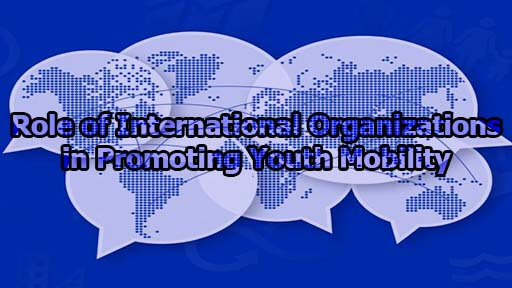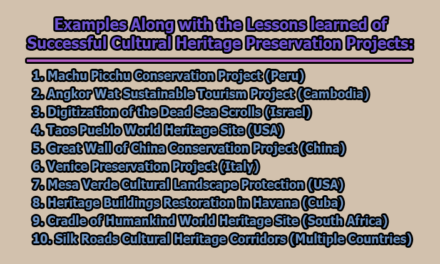International organizations have been instrumental in promoting youth mobility across the world. Youth mobility refers to the movement of young people from one country to another for various purposes such as education, employment, training, cultural exchange, and volunteer work. The benefits of youth mobility are well documented, including enhancing skills and employability, building networks, fostering cross-cultural understanding, and promoting global citizenship. However, youth mobility also faces several challenges such as visa restrictions, cultural barriers, lack of financial resources, and political instability. International organizations play a crucial role in addressing these challenges and promoting youth mobility globally. This article will explore the role of international organizations in promoting youth mobility and the strategies they employ to achieve this objective.
Definition of International Organizations:
International organizations are formal institutions that are created through international agreements and conventions to address issues that affect the international community. International organizations have various forms such as intergovernmental organizations, non-governmental organizations, and multinational corporations. Intergovernmental organizations (IGOs) are created by states through treaties or agreements to address issues of common concern, while non-governmental organizations (NGOs) are created by private individuals and groups to address issues that affect society. Multinational corporations (MNCs) are business entities that operate in multiple countries and have a global reach. International organizations operate under the principles of international law and have specific mandates and objectives.
International organizations that promote youth mobility:
There are several international organizations that promote youth mobility across the world. Some of these organizations are intergovernmental, while others are non-governmental. The following are some of the international organizations that promote youth mobility:
- United Nations Educational, Scientific and Cultural Organization (UNESCO): UNESCO is a specialized agency of the United Nations that promotes peace, social justice, and sustainable development through education, science, and culture. UNESCO promotes youth mobility through its programs on education, science, and culture. UNESCO’s Youth Program aims to promote the full participation of young people in society and to empower them to become active citizens. UNESCO promotes youth mobility through various initiatives such as the Global Action Program (GAP) on Education for Sustainable Development (ESD), which seeks to empower young people to contribute to sustainable development through education.
- International Labour Organisation (ILO): The International Labour Organisation (ILO) is a specialized agency of the United Nations that promotes social justice and decent work for all. ILO promotes youth mobility through its Youth Employment Program, which seeks to promote youth employment and entrepreneurship. ILO works with governments, employers’ and workers’ organizations, and other stakeholders to develop policies and programs that promote youth employment and entrepreneurship. ILO promotes youth mobility by supporting youth entrepreneurship and facilitating access to training and education.
- European Union (EU): The European Union (EU) is a political and economic union of 27 member states located primarily in Europe. The EU promotes youth mobility through its Erasmus+ program, which aims to promote learning mobility, cooperation, and exchange between higher education institutions, vocational education and training (VET) providers, and youth organizations across Europe. Erasmus+ provides opportunities for young people to study, train, and volunteer in other European countries. Erasmus+ aims to promote cross-cultural understanding, social inclusion, and active citizenship among young people.
- World Organization of the Scout Movement (WOSM): The World Organization of the Scout Movement (WOSM) is an international organization that promotes the education of young people through the Scout method. The Scout method aims to develop young people’s physical, intellectual, and moral qualities. WOSM promotes youth mobility through its International Scout Centre in Switzerland, which provides opportunities for young people to participate in international events and programs. WOSM aims to promote cross-cultural understanding and global citizenship among young people.
- International Association for the Exchange of Students for Technical Experience (IAESTE): The International Association for the Exchange of Students for Technical Experience (IAESTE) is an international organization that promotes the international exchange of students in technical fields. IAESTE aims to provide practical training and work experience for students in engineering, science, and technology. IAESTE promotes youth mobility by facilitating exchange programs between universities, research institutions, and industry. IAESTE provides opportunities for students to gain international work experience and develop intercultural communication and teamwork skills.
Role of International Organizations in Promoting Youth Mobility:
Here we examine the role of international organizations in promoting youth mobility, with a focus on their efforts to support education, employment, and cultural exchange opportunities for young people.
i. Education: One of the main ways that international organizations promote youth mobility is by supporting educational opportunities for young people. Many international organizations have a mandate to promote education and provide educational resources to people around the world. UNESCO has established a number of initiatives to support education for young people, such as the Global Education First Initiative, which aims to ensure that all children have access to quality education.
Another example of an international organization that supports education for young people is the EU. The EU provides funding for education programs, such as the Erasmus+ program, which supports student mobility and provides opportunities for young people to study abroad. The Erasmus+ program has been very successful in promoting youth mobility in Europe, with over 9 million people participating in the program since its launch in 1987.
ii. Employment: International organizations also play an important role in promoting youth employment and entrepreneurship. ILO is one example of an international organization that focuses on promoting decent work for young people. ILO has established a number of initiatives to support youth employment, such as the Youth Employment Program, which provides technical assistance and policy advice to governments and other stakeholders to promote youth employment.
The World Bank is another international organization that supports youth employment and entrepreneurship. The World Bank provides funding for projects that support youth employment and entrepreneurship, such as the Youth Employment Support Project in Tunisia. This project aims to increase employment opportunities for young people in Tunisia by providing vocational training and entrepreneurship support.
iii. Cultural Exchange: In addition to education and employment opportunities, international organizations also promote cultural exchange opportunities for young people. Cultural exchange programs provide young people with the opportunity to learn about different cultures and gain a greater understanding of the world around them. One example of an international organization that supports cultural exchange is the United States Department of State. The Department of State has established a number of cultural exchange programs, such as the Fulbright Program, which provides opportunities for students, scholars, and professionals to study, teach, and conduct research abroad.
The United Nations also supports cultural exchange programs for young people. UNESCO has established a number of initiatives to promote cultural exchange, such as the Creative Cities Network, which promotes cultural diversity and sustainable urban development through the exchange of best practices.
Strategies used by international organizations to promote youth mobility:
International organizations use various strategies to promote youth mobility across the world. Some of these strategies include:
- Developing policies and programs that promote youth mobility: International organizations develop policies and programs that promote youth mobility by addressing issues such as visa restrictions, cultural barriers, and lack of financial resources. For example, the EU’s Erasmus+ program provides financial support to students and staff participating in mobility activities. The program also supports the recognition of qualifications and the transfer of credits between institutions.
- Providing information and guidance to young people: International organizations provide information and guidance to young people on opportunities for mobility, including scholarships, internships, and volunteer work. For example, UNESCO’s Youth Program provides information on its website on opportunities for youth mobility, including scholarships and fellowships. The program also provides guidance on how to apply for these opportunities and how to prepare for a mobility experience.
- Facilitating partnerships and cooperation among stakeholders: International organizations facilitate partnerships and cooperation among stakeholders to promote youth mobility. For example, ILO works with governments, employers’ and workers’ organizations, and other stakeholders to develop policies and programs that promote youth employment and entrepreneurship. IAESTE facilitates partnerships between universities, research institutions, and industry to provide opportunities for students to gain international work experience.
- Advocating for youth mobility at the international level: International organizations advocate for youth mobility at the international level by raising awareness of its benefits and by promoting policies and programs that support it. For example, UNESCO advocates for the importance of youth mobility in achieving the Sustainable Development Goals (SDGs). The SDGs aim to promote sustainable development and address global challenges such as poverty, inequality, and climate change.
Challenges faced by international organizations in promoting youth mobility:
International organizations face several challenges in promoting youth mobility across the world. Some of these challenges include:
- Political instability and conflict: Political instability and conflict in some countries can limit opportunities for youth mobility. For example, visa restrictions may be imposed on young people from countries affected by conflict or political instability.
- Lack of financial resources: Young people from disadvantaged backgrounds may face financial barriers that limit their opportunities for mobility. International organizations may provide financial support to some young people, but this may not be sufficient to overcome all financial barriers.
- Cultural barriers: Cultural barriers such as language and customs can limit opportunities for youth mobility. International organizations may provide language and cultural training to young people to overcome these barriers.
- Visa restrictions: Visa restrictions can limit opportunities for youth mobility. International organizations may advocate for the removal of visa restrictions or for the provision of visa waivers for young people.
In conclusion, youth mobility has the potential to play a transformative role in the lives of young people, and in the achievement of global goals such as sustainable development and social and economic justice. By working together and overcoming the challenges that exist, international organizations, governments, civil society, and the private sector can help to unlock this potential and create a brighter future for young people around the world.

Library Lecturer at Nurul Amin Degree College










